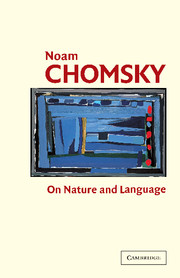1 - Editors' introduction: some concepts and issues in linguistic theory
Published online by Cambridge University Press: 05 September 2012
Summary
The study of language in a biological setting
Dominant linguistics paradigms in the first half of the twentieth century had centered their attention on Saussurean “Langue,” a social object of which individual speakers have only a partial mastery. Ever since the 1950s, generative grammar shifted the focus of linguistic research onto the systems of linguistic knowledge possessed by individual speakers, and onto the “Language Faculty,” the species-specific capacity to master and use a natural language (Chomsky 1959). In this perspective, language is a natural object, a component of the human mind, physically represented in the brain and part of the biological endowment of the species. Within such guidelines, linguistics is part of individual psychology and of the cognitive sciences;its ultimate aim is to characterize a central component of human nature, defined in a biological setting.
The idea of focusing on the Language Faculty was not new; it had its roots in the classical rationalist perspective of studying language as a “mirror of the mind,” as a domain offering a privileged access to the study of human cognition. In order to stress such roots, Chomsky refers to the change of perspective in the 1950s as “the second cognitive revolution,” thus paying a tribute to the innovative ideas on language and mind in the philosophy of the seventeenth to early nineteenth centuries, with particular reference to the Cartesian tradition.
- Type
- Chapter
- Information
- On Nature and Language , pp. 1 - 44Publisher: Cambridge University PressPrint publication year: 2002



